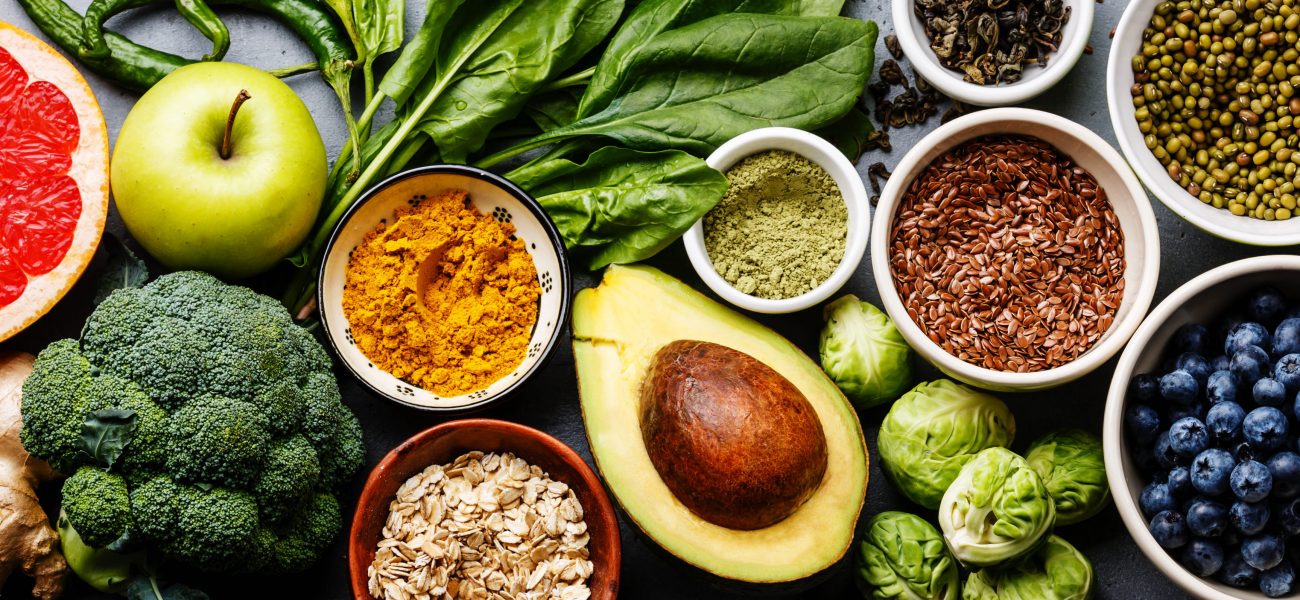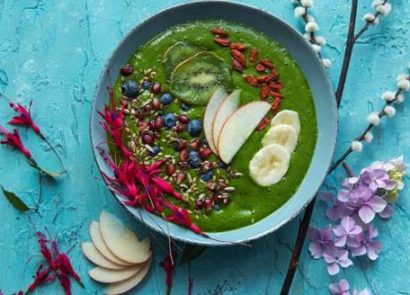Every two minutes someone in the UK is diagnosed with cancer, according to statistics from Cancer Research UK (cancerresearchuk.org), which can make for scary reading. But find comfort in the fact that there is plenty you can do to reduce your risk, as the charity reports that more than 135,500 cases could be prevented through lifestyle changes, including diet. Their research continues to show that a healthy and balanced diet that includes plenty of fibre, fruit and vegetables, with less red and processed meat and salt, could prevent around one in 20 cancers. “Cancer is a systemic disease caused by various elements such as toxin exposure, genetics and nutrient deficiencies by a poor diet,” explains Fraz Rees, founder of health blog Heal and Deal (healanddeal.co.uk). “Unlike the other factors, diet is something that you have full control of, so why wouldn’t you want to adopt the best eating habits that you possibly can?”
Time to go
plant-based? Recent data from the World Cancer Research Fund and the American Institute for Cancer Research recommends plant-based foods to reduce cancer risk. The words from Anti Cancer Living by Dr Lorenzo Cohen and Alison Jefferies (£12.48, Penguin Books) further support this. Although this shouldn’t mean you stop eating meat all together, the recommendation is to look at vegetables and plants as the main component of a meal.
To illustrate this, the authors claim that the diet with the greatest benefit in terms of health and cancer resistance is the Mediterranean diet, which was also noted by David Servan- Schreiber in Anticancer (£10.52, Penguin Books). “Research has long connected the Mediterranean diet with reduced risk of cardiovascular disease and diabetes. More recent studies point to potential impacts on cancer risk and connections to brain health. A 2015 study analysing the diets of more than five thousand Italian women found that those who followed the Mediterranean diet most closely had a 57 percent reduced risk of endometrial cancer. A key aspect of the Mediterranean diet is consumption of vegetables and fruits. When it comes to fruit and vegetable intake, the evidence suggests more might be better. A meta-analysis of 95 prospective cohort studies found that people who regularly eat 10 portions of fruit and vegetables a day have significantly lower risk of chronic diseases, including heart disease and cancer. Researchers found that for each additional 200g of fruit and vegetable intake (around two portions) cancer risk went down by three percent. They concluded that 7.8 million early deaths from cancer, heart disease and stroke could have been prevented by people eating 10 portions of fruit and vegetables a day.”
What to eat:
Fresh herbs and spices
“Turmeric contains the active ingredient curcumin, proven to reduce inflammation and decrease tumour size,” explains Fraz. “Turmeric can easily be incorporated into meals – just simply add a teaspoon to a stir fry, with eggs or even in a drink. Ginger, raw garlic, oregano and parsley act as immune system boosters. These can easily be added to smoothies or dressings.”
Fruit and vegetables
Eating your five portions of fruit and vegetables a day isn’t just about maintaining a healthy weight – scientists have found that one in 20 cancers could be associated with eating less than your recommended daily intake. “There are two ways that fruit and veg help to protect against cancer,” says Ceitanna Cooper, nutritionist at AXA PPP healthcare (axappphealthcare.co.uk). “Firstly, they contain nutrients such as carotenoids, folate, vitamin C, vitamin E and selenium, which all protect against cancer in different ways. Carotenoids, for example, are antioxidants that help to stop free radical chemicals damaging cells, while folate helps to repair DNA. Fruit and vegetables also contain high levels of fibre and there is strong evidence to suggest that high-fibre diets are excellent ways to protect against cancer.” Although it’s important to eat a variety, as each fruit and vegetable contains different amounts of nutrients, so make sure you consume a range.
Wholegrains
“A high-fibre diet can do wonders to protect against cancer, so tuck into wholegrain foods such as bread, pasta, brown rice, chickpeas, lentils and kidney beans,” says Ceitanna. “Fibre produces a chemical called butyrate, which makes cancer less likely to develop, as it speeds up the passage of food. This means potentially harmful chemicals spend less time in contact with the cells lining the bowel, and the nasty chemicals have less time to be absorbed.”
What to limit:
Red and processed meat
“Research shows that eating a lot of red and processed meat, such as beef, pork, lamb, bacon, ham, salami and sausages, can increase your risk of cancer,” says Ceitanna. “Primarily, this is in the bowel, but newer studies also show a link with pancreatic and stomach cancer, too. Red and processed meat both contain haem, a red pigment, and it’s thought this could harm cells in your bowel and trigger the production of N-nitroso compounds, which are chemicals that can cause cancer. The way some processed meats are preserved can also produce these chemicals in the bowel. There is some good news – red meat also contains really beneficial nutrients, so it’s more about moderating your intake of the stuff than cutting it out altogether.”
Saturated fat
“Keep an eye on your intake of saturated (animal) fats,” recommends Ceitanna. “Studies have shown that there is a link between saturated fat and a small increase in the chance of developing breast cancer. Although it hasn’t been properly established, it’s thought that high levels of saturated fat increase hormones that could lead to some cancers.”
Salt
“Research suggests that a high-salt diet – including eating salty foods or meals that have been preserved in salt – increases your risk of developing stomach cancer,” explains Ceitanna. “It’s not yet been fully established why, but it could be that salt damages the lining of the stomach or makes it more sensitive to harmful chemicals. The recommended daily allowance is 6g of salt.”
Consider these lifestyle changes:
Toral Shah, nutritional scientist and health writer (theurbankitchen.co.uk), tells us her top cancer-fighting lifestyle changes
Maintain a healthy weight
There is lots of evidence to demonstrate that being overweight or obese increases the risk of 12 cancers – this is linked to the percentage of body fat rather than weight that can be attributed to muscle mass.
Be physically active
Being physically active can protect against breast, colon and endometrial cancer, and it helps prevent weight gain. Healthy recommendations include walking more and sitting less.
Watch your drinks
Limit sugary drinks as there is plenty of evidence suggesting that excessive consumption of them causes weight gain by increasing calorie intake. Drink water or unsweetened drinks. Also, limit alcohol consumption as it may increase the risk of several cancers.



















